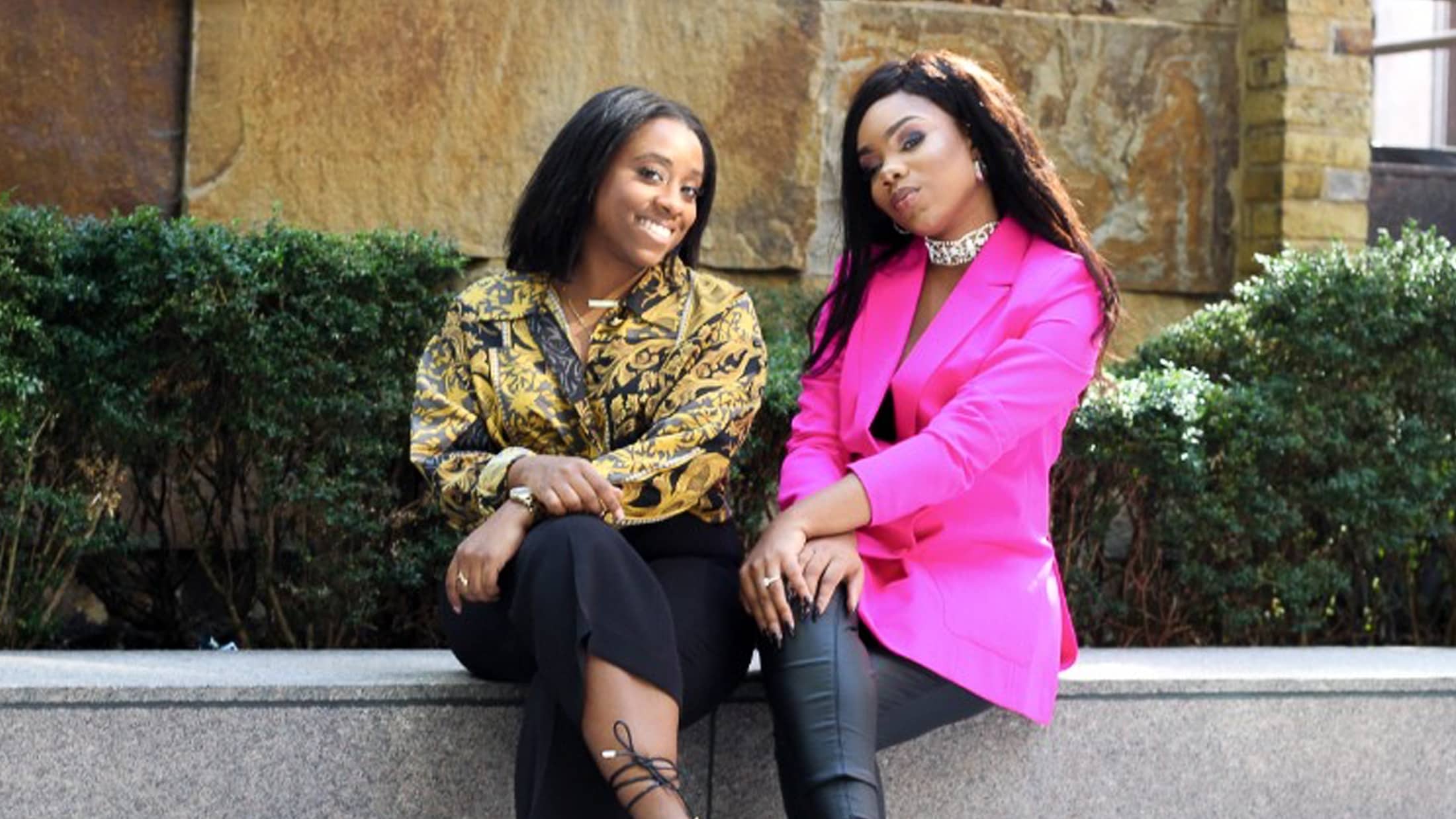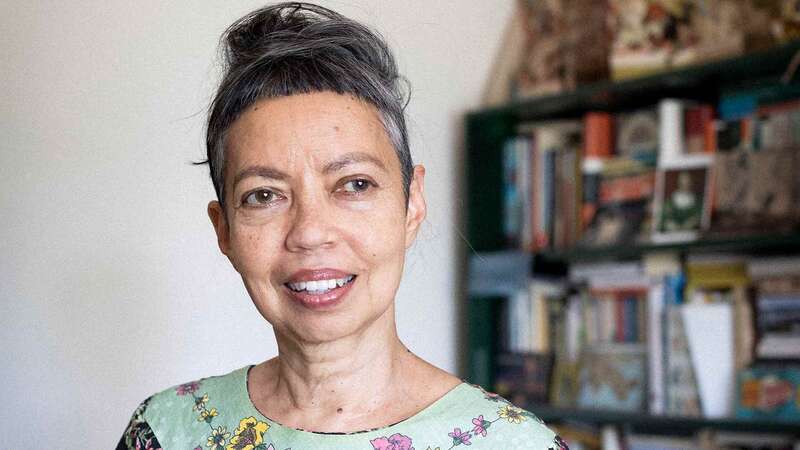You are viewing your 1 free article this month. Login to read more articles.
Melissa Cummings-Quarry and Natalie A Carter: Turning the focus on the next generation
After creating a successful book events business, Black Girls Book Club founders Melissa Cummings-Quarry and Natalie A Carter want to help black girls live their best lives
Though Black Girls Book Club (BGBC) founders Melissa Cummings-Quarry and Natalie A Carter inked the deal for their upcoming first book last year, it was not quite a recent development.
In fact, the duo says the idea for Grown, their life skills book for Black teenage girls, was essentially brewing since they launched BGBC, the wildly successful series of book-based events for Black women. Cummings-Quarry explains: “Both Natalie and I have been quite strategic about [BGBC] since we started, so in a lot of ways the book has been coming since 2016. We’ve always thought about the branding, about the sort of events we were program- ming. I’m a business manager and Natalie’s a lawyer, so by profession we’re solutions and commercially driven. So, it’s not a fluke that a book is the next step.”
Carter adds: “It was kind of a natural progression. We created what was a safe space for Black women to bond over books and become friends... so we were thinking, what can we do for the younger women and girls who need support and information?”
Cummings-Quarry jumps in (best friends since they were 11, they often bounce back and forth and finish each other’s sentences): “We were thinking, there are books out there for adult women, but what about Black girls? You can give them [Candice Carty-Williams’] Queenie, but Queenie was not really written with them in mind. Any Black girl who picks up Grown looking to find something that kind of speaks to them directly, I think they’re going to connect with it.”
In many ways the book reflects BGBC’s community building. The bulk of Grown was written by Carter and Cummings-Quarry but there are a raft of contributors, many of whom the two met during their events. They include authors Carty-Williams, Faridah Àbíké-Íyímídéa and Sara Collins; activists and influencers such Nyome Nicholas-Williams and Kasey Robinson; Dialogue Books publisher Sharmaine Lovegrove and the MP Diane Abbott. Plus, with all due respect to the other contributors, the starriest turn is by Spice Girl Mel B, who writes the intro- duction and a poignant piece on domestic violence.
Grown is illustrated throughout by Dorcas Magbadelo who—and here’s that long-term strategic thinking again— has been doing the BGBC branding and artwork since the start. The book contains sisterly advice and information on a wide range of subjects and issues that affect Black girls, from skin and haircare, body image, spirituality and cultural identity, to periods, mental health, sex and relationships. Grown is aimed at teen and pre-teen girls and the language is accessible and often laugh-out-loud funny even around difficult issues—a subsection in the chapter on learning to accept one’s body is entitled “Tig ol’ bitties” and is followed by a comprehensive list of synonyms for breasts (“melons, jugs, breasticles...”) and we learn that Cummings-Quarry calls “my left one Tia and the right Tamera”. But the writing is very adult—as likely to reference intersectional theory as name-check Cardi B—and never condescends. Cummings-Quarry says: “That tone is something we really pushed for, and went back and forth with the publisher. We said, ‘We came to you saying we would be writing this for Black girls and this is how you speak to Black girls; we were Black girls and we understand how to speak to them.’”
Carter adds: “Also, when I was that age, and I had older aunties, siblings and adults talking to me, they spoke to me normally, they never dumbed things down. We don’t really do that in our community. That’s just not how we roll, the way we speak to each other is very, very direct.” Carter, Cummings-Quarry and I have a bit of banter during our chat about how I’m not exactly Grown’s core audience. But there is much of interest for one who isn’t a Black girl. Cummings-Quarry has a fascinating piece on misogynoir: how Black women are particularly discriminated against, often by the perpetuation of stereotypes like the “angry Black woman” trope. And Carter writes movingly on dealing with racist microaggressions, beginning with a story from her own childhood when, as the only Black girl in ballet class, her teacher refused to give her main roles, always put her in the back and complained of having to teach someone with “such heavy bones” (referring to the pseudoscientific theory that Black people have denser bone structure). Carter’s mother eventually pulled her out of the class because she could see it was destroying her daughter’s confidence.
Carter says: “I struggled with the microaggressions chapter because a lot of it are things you don’t realise were happening to you until 20 years later, when you process it and can be like, ‘Aha, that’s what that was.’ I talked to my mother about it when I was writing, and she remembers my ballet teacher like it was yesterday and is still angry about it—and that was 24 years ago. That’s a good thing about writing Grown, it’s been a bit of a palate cleanser in terms of just being honest and able to relate your own experiences.”
The two friends originally started BGBC because they both loved books and, says Cummings-Quarry, “we knew there are other Black women out there who were excited about new books. But whenever I went to events or festivals, I didn’t see them there. Even at something like a Zadie Smith or Chimamanda [Ngozi Adichie] launch. And we knew why. I think we all know why. So we just decided to start a book club.”
They quickly built a huge following, with meet-ups featuring star authors such as Roxane Gay, Angie Thomas and Malorie Blackman, and in 2019 they launched their own festival. While they now frequently appear at industry events (and were on The Bookseller Rising Stars list in 2019), they stand at a position both inside and out of the trade. As such, they have a nuanced view of how publishing is tackling diversity.
Long way to go
Carter says: “There is a long way to go. I think it’s one thing to have diverse people and another actually valuing their opinions and having their experiences respected. I don’t want to be in a situation where we have publishers who pat themselves on the back because they’ve published a particular name in a particular way, or that they are doing it because it’s the right thing, because that’s just a tick box.”
Cummings-Quarry continues: “And what I want to see is minoritised and marginalised people being able to make decisions, that’s where real changes are made: more Black people doing marketing, more doing publicity, more at board level.”
The two wrote most of the book last year, so did the Black Lives Matter protests change the content? Yes and no, Carter says. “It was a difficult time to write it, a difficult time emotionally. A lot of people were talking about what they believe the Black experience to be. But it was a moment, and we have had moments like this before and they have passed. My writing was influenced by BLM in some way, just as it was influenced by writing during lockdown. But the content didn’t really change because my understanding of what the Black experience is wasn’t going to change, and my life experience didn’t change because of what happened last summer.”
Cummings-Quarry agrees: “In terms of content, it was always going to be the same because these things have been happening forever. These experiences are ones my mum, my grand- mother, my great-grandmother have lived through. However, it reinforced why this book is so important and why it needed to be on shelves, because even during last summer, so little was being done for Black children.”










